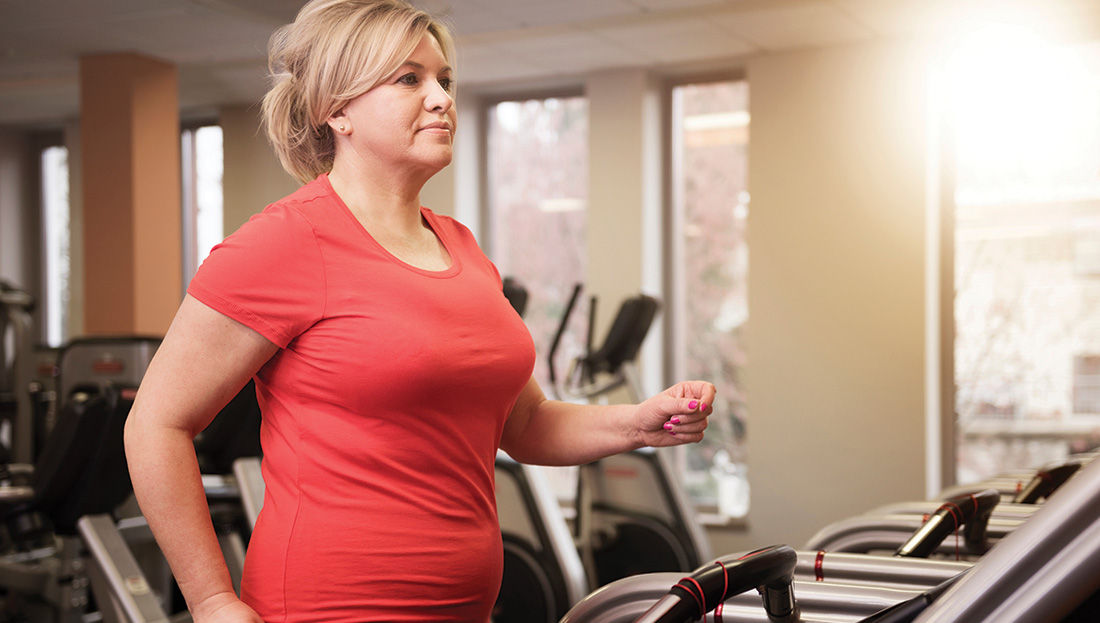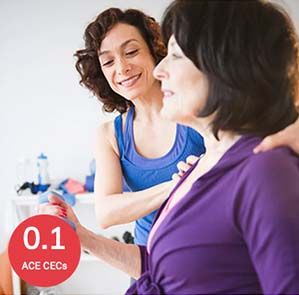
Study: Exercise May Help Slow Cancer Progression

You know exercise is fundamental to overall health and wellness, but a small new study by researchers at Edith Cowan University (ECU) shows just how critically important it can be, even for people with advanced cancer.
Previous research from ECU’s Exercise Medicine Research Institute, located in Western Australia, showed that men with advanced prostate cancer who exercised for six months were able to change the chemical environment of their body to suppress the growth of cancer cells. The researchers observed increased levels of proteins called myokines, which are produced by skeletal muscles and can suppress tumor growth and even help actively fight cancerous cells by stimulating a range of anti-cancer processes in the body.
This newest study suggests that even a single bout of exercise can elevate myokines and induce additional cancer suppression. Importantly, this exercise-induced medicine occurs in patients with incurable, advanced cancer who have already received extensive treatment over many years.
The Study
Nine patients with late-stage prostate cancer performed 34 minutes of high-intensity interval exercise on a stationary cycle, with blood serum collected immediately before and after, and then again 30 minutes post-workout.
The team found the serum obtained immediately after this “dose” of exercise contained elevated levels of anti-cancer myokines, resulting in suppressed growth of prostate cancer cells in vitro by about 17%. These serum myokine levels and subsequent cancer suppression returned to baseline after 30 minutes.
Professor Rob Newton, one of the study’s authors, believes it was a breakthrough moment in exercise oncology.
“The findings from our work are particularly exciting because we report for the first time ever that men with advanced prostate cancer are able to produce an acute elevation in anti-cancer molecules called myokines in response to a single bout of vigorous exercise,” explains Dr. Newton. “This is helping us to understand why patients with cancer who exercise exhibit slower disease progression and survive for longer.”
While there is no cure for the participants in this study, Dr. Newton says this study provides evidence that “exercise will extend survival and the increased myokine levels explored in our recent paper is a prime mechanism.” Additionally, he believes the results of this study could help shape the advice given to cancer patients immediately.
“The optimal dose of exercise is not yet known, but it is likely to be 20-plus minutes each day and must include resistance training to grow the muscles, increase the size and capacity of the internal pharmacy, and stimulate the myokine production,” he says.
“This study provides strong evidence for the recommendation that patients with prostate cancer, and likely anybody with any cancer type, should perform exercise most days, if not every day, to maintain a chemical environment within their body which is suppressive of cancer cell proliferation.”
What the Research Means to Health and Exercise Professionals
“As a fitness professional who understands the potentially life-altering impact of exercise for every single person impacted by cancer, I’m thrilled to see the growth in research that reinforces the importance of including exercise into the cancer care plan for every patient,” says Sami Mansfield, a cancer exercise specialist and founder of Cancer Wellness for Life, an organization focused on developing oncology wellness and exercise resources for hospital and healthcare organizations, non-profits and individuals affected by cancer. “Understanding the mechanisms behind the impact of exercise allows us to deliver more individualized exercise programs.”
Currently, the American Cancer Society and the American College of Sports Medicine recommend that anyone affected by cancer (in accordance with all age-related physical activity guidelines) should avoid inactivity, return to daily activities as soon as possible after surgery, and continue with their normal activities and exercise as much as they are able during and after non-surgical treatments. The recommendations include 150 to 300 minutes of moderate or 75 to 150 minutes of vigorous intensity aerobic exercise, two to three sessions of resistance training of each major muscle group, and integrating balance and flexibility exercise with aerobic and resistance training sessions weekly. However, Mansfield believes these recommendations lack the specificity that is necessary to provide high-quality individualized exercise programming for cancer survivors and do not consider the individual’s history, preferences and goals.
“It’s important to remember that some exercise is always better than no exercise,” says Mansfield, “and the basic message of the recommendations is to avoid inactivity. When possible, however, strive to use the newest research to help your clients achieve the best results using what we know about types, intensities and variabilities of exercise.” Providing your clients with quality exercise instruction and guidance can change the quality and quantity of their lives.
For more information on cancer and exercise, check out Mansfield’s previous CERTIFIED articles here and here.
Expand Your Knowledge
 |
Cancer Exercise SpecialistDeveloping the ability to assess individual patients and create health and fitness programs that benefit their unique experience is imperative to successfully working with cancer patients and survivors. The Cancer Exercise Specialist Program teaches the practical, hands-on skills needed to guide patients through treatment into recovery and long-term survivorship, with a specific focus on individualized programming. |
 |
Working with Cancer PatientsExercise can be extremely beneficial for the recovery of cancer patients, but there are critically important factors to consider. This ACE LiveClass covers a broad range of considerations and takes a step-by-step approach through the assessment process and workout programming, including absolute contraindications to exercise. |
 |
Pink Ribbon ProgramThe Pink Ribbon Program is the only medical fitness program created specifically to help those recovering from breast cancer, offering health and exercise professionals the opportunity to serve a population of need, and gain a foothold in a niche market in the industry. You will increase your knowledge-base and skill set and get the chance to work with patients throughout the entire treatment and recovery process—and beyond. |

More Articles
- Certified™: February 2023
How to Find the Right Balance Between Coaching and Training
Contributor
- Certified™: February 2023
Outdoor Winter Exercise: 7 Key Programming Considerations
Contributor




 by
by 

